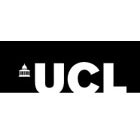- Home
- Search
- Psychology
- University College London
- Low Intensity Cognitive Behavioural Interventions for Common Mental Health Problems PG Cert
Low Intensity Cognitive Behavioural Interventions for Common Mental Health Problems PG Cert
Course options
-
Qualification
Postgraduate Certificate
-
Location
UCL (University College London)
-
Study mode
Part time
-
Start date
01-SEP-25
-
Duration
1 year
Course summary
About this degree
This certificate provides the formal training required as part of a student's employment within an Improving Access to Psychological Therapies (IAPT) service. Students on this programme will secure a placement working as a trainee Psychological Wellbeing Practitioner (PWP) delivering low intensity cognitive behavioural interventions. Trainees on this programme will gain the knowledge necessary for providing low intensity interventions for clients with mild to moderate depression and anxiety in their primary healthcare work setting, together with the clinical skills essential to assess and engage clients, and to deliver interventions within a guided self-help model.
Who this course is for
Applicants are required to show evidence of ability to study successfully at postgraduate level and evidence of experience in an employed or formal volunteer helping role with people with psychological, interpersonal or social problems. They should have a broad understanding of mental health issues and ability to form a good helping relationship with people with mental health problems, obtained through work or volunteer experience. Applicants should also have good communication skills, and the ability to use clinical supervision and personal development positively and effectively.
What this course will give you
The UCL programme is run and taught by experienced practitioners in the field, and therefore a balance is achieved between the teaching of the theoretical knowledge needed and the practical skills necessary in training as a Psychological Wellbeing Practitioner (PWP).
Students will receive employment and practical experience in an Improving Access to Psychological Therapies Service alongside this formal training needed in order to become a qualified Psychological Wellbeing Practitioner.
The foundation of your career
Employability
The Postgraduate Certificate is the formal training required as part of the student's employment as an IAPT Psychological Wellbeing Practitioner. Trainee PWPs are appointed at band 4 and upon successful completion of the programme will move to being qualified PWPs. It is anticipated that trainees will stay in these positions after completing the programme, working as a qualified PWP in an IAPT service.
Accreditation
This programme is accredited by the British Psychological Society (BPS).
Teaching and learning
The programme is delivered through a combination of lectures, workshops, skills practice, clinical seminar skills groups, directed reading and e-learning. Assessments are a combination of written and oral assignments. Written assignments include an examination, a supervision case report and reflective accounts. Oral assignments are an Assessment Simulation (OSCE), live recording of a treatment session and a Diversity case presentation exam.
Modules
Tuition fees
- Hong Kong
- Afghanistan
- Albania
- Algeria
- Andorra
- Angola
- Antigua & Barbuda
- Argentina
- Armenia
- Australia
- Austria
- Azerbaijan
- Bahamas
- Bahrain
- Bangladesh
- Barbados
- Belarus
- Belgium
- Belize
- Benin
- Bhutan
- Bolivia
- Bosnia and Herzegovina
- Botswana
- Brazil
- Brunei
- Bulgaria
- Burkina Faso
- Burma
- Burundi
- Cabo Verde
- Cambodia
- Cameroon
- Canada
- Central African Republic
- Chad
- Chile
- China
- Colombia
- Comoros
- Congo
- Congo (Democratic Republic)
- Costa Rica
- Croatia
- Cuba
- Curacao
- Cyprus
- Czech Republic
- Denmark
- Djibouti
- Dominica
- Dominican Republic
- East Timor
- Ecuador
- Egypt
- El Salvador
- England
- Equatorial Guinea
- Eritrea
- Estonia
- Ethiopia
- Fiji
- Finland
- France
- Gabon
- Gambia
- Georgia
- Germany
- Ghana
- Greece
- Grenada
- Guatemala
- Guinea
- Guinea-Bissau
- Guyana
- Haiti
- Honduras
- Hungary
- Iceland
- India
- Indonesia
- Iran
- Iraq
- Israel
- Italy
- Ivory Coast
- Jamaica
- Japan
- Jordan
- Kazakhstan
- Kenya
- Kiribati
- Korea DPR (North Korea)
- Kosovo
- Kuwait
- Kyrgyzstan
- Laos
- Latvia
- Lebanon
- Lesotho
- Liberia
- Libya
- Liechtenstein
- Lithuania
- Luxembourg
- Macedonia
- Madagascar
- Malawi
- Malaysia
- Maldives
- Mali
- Malta
- Marshall Islands
- Mauritania
- Mauritius
- Mexico
- Micronesia
- Moldova
- Monaco
- Mongolia
- Montenegro
- Morocco
- Mozambique
- Namibia
- Nauru
- Nepal
- Netherlands
- New Zealand
- Nicaragua
- Niger
- Nigeria
- Northern Ireland
- Norway
- Oman
- Pakistan
- Palau
- Palestinian Authority
- Panama
- Papua New Guinea
- Paraguay
- Peru
- Philippines
- Poland
- Portugal
- Puerto Rico
- Qatar
- Republic of Ireland
- Romania
- Russia
- Rwanda
- San Marino
- Sao Tome and Principe
- Saudi Arabia
- Scotland
- Senegal
- Serbia
- Seychelles
- Sierra Leone
- Singapore
- Slovakia
- Slovenia
- Solomon Islands
- Somalia
- South Africa
- South Korea
- South Sudan
- Spain
- Sri Lanka
- St Vincent
- St. Kitts & Nevis
- St. Lucia
- Sudan
- Suriname
- Swaziland
- Sweden
- Switzerland
- Syria
- Taiwan
- Tajikistan
- Tanzania
- Thailand
- Togo
- Tonga
- Trinidad & Tobago
- Tunisia
- Turkey
- Turkmenistan
- Tuvalu
- UAE
- Uganda
- Ukraine
- United Kingdom
- United States
- Uruguay
- Uzbekistan
- Vanuatu
- Vatican City
- Venezuela
- Vietnam
- Wales
- Western Samoa
- Yemen
- Zambia
- Zimbabwe
Information not available
Please check with the institution for most up to date details.
University information
-
University League Table
9th
-
Campus address
UCL (University College London), Gower Street, London, Camden, WC1E 6BT, United Kingdom
Subject rankings
-
Subject ranking
6th out of 118
-
Entry standards
/ Max 213190 89%8th
-
Graduate prospects
/ Max 10071.0 71%27th
3 -
Student satisfaction
/ Max 43.04 76%69th
30







